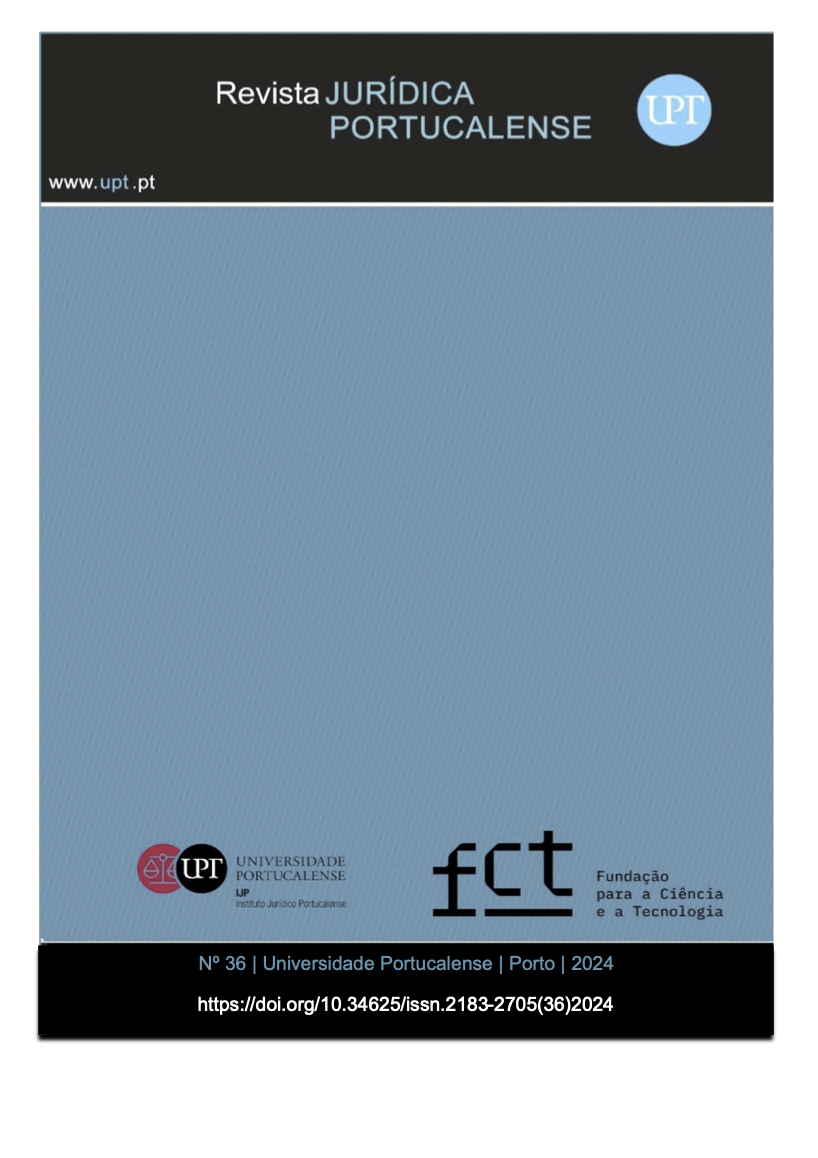European citizenship in quest of a political culture: supranational by law or transnational by politics?
DOI:
https://doi.org/10.34625/issn.2183-2705(36)2024.ic-23Keywords:
European citizenship; European law; supranational;·transnational;·political culture.Abstract
The present article raises crucial questions regarding European citizenship. How has European citizenship been constructed and manifested within the legal and political domains of the European integration project, and how European citizens perceive their rights and duties across supranational and transnational manifestations of European citizenship? The main argument of this article is that European citizenship is constructed by European law in an ambiguous way, allowing for both supranational and transnational interpretations. Similarly, an individualistic conception of citizenship, as an earned status, rather than a vehicle for creating political culture of solidarity, justice, and inclusion, has been limiting the potential of the endeavour itself. The current work builds upon the foundations of political theory and employs a legal and political interpretive methodology.
References
BALLA, Evanthia. “The EU Human Rights Paradigm: Re(politicizing) European Integration.” In Crises of the Political and Human Rights: Critical Perspectives on the Common World, edited by Silvério da Rocha-Cunha, Evanthia Balla, Irene Viparelli, Paulo Vitorino Fontes, and Rafael Franco Vasques, 2023. Humus edition.
BAUBÖCK, Rainer. Debating European Citizenship. Springer, 2028. https://doi.org/10.1007/978-3-319-89905-3 last access: 10.06.2024.
BELLAMY, Richard. Evaluating Union Citizenship: Belonging, Rights and Participation Within the EU. Citizenship Studies, 2008, vol. 12, pp. 597–611. https://doi.org/10.2139/ssrn.1519910 last access: 10.05.2024.
BELLAMY, Richard. The Theories and Practices of Citizenship. Citizenship: Critical Concepts, 4 Volumes, R. Bellamy & M. Kennedy-MacFoy, eds. Routledge, 2014. Available at: https://ssrn.com/abstract=2348922 last access: 10.06.2024.
BELLAMY, Richard; CASTIGLIONE, Dario; SHAW, John. “Citizenship and Its Discontents.” In: KLOSKO, George, ed. The Oxford Handbook of the History of Political Philosophy. Oxford: Oxford University Press, 2015, pp. 450-472.
DAWSON, Mark. The Governance of the EU: Fundamental Rights. Oxford: Oxford University Press, 2017.
DE BÚRCA, Gráinne. “The Evolution of EU Human Rights Law.” In: CRAIG, Paul; DE BÚRCA, Gráinne, eds. The Evolution of EU Law. Oxford: Oxford University Press, 2021.
DELANTY, Gerard. European Citizenship: A Critical Assessment. Citizenship Studies, University of Liverpool, Liverpool, UK, 30 May 2007. Available at: http://www.tandfonline.com/loi/ccst20 last access: 10.08.2024.
ERIKSEN, Erik Oddvar; FOSSUM, John Erik. “The EU’s Democratic Deficit and the Role of European Citizenship.” European Journal of Political Theory, 2004, vol. 3, pp. 341-370.
ERIKSEN, Erik Oddvar. The Unfinished Democratization of Europe. Oxford: Oxford University Press, 2009.
Espen D.H. Transnational Citizenship in the European Union: Past, Present and Future. New York: Continuum, 2012.
GILLINGHAM, John. European Integration, 1950–2003: Superstate or New Market Economy? Cambridge: Cambridge University Press, 2003.
HOFFMANN, Stanley. Obstinate or Obsolete? The Fate of the Nation-State and the Case of Western Europe. New York: New York University Press, 1966.
HABERMAS, Jürgen. “The European Nation-State: On the Past and Future of Sovereignty.” European Journal of Philosophy, 1996, vol. 4, pp. 1-17.
HABERMAS, Jürgen. “The Future of Democratic Legitimacy in the European Union.” European Law Journal, 2001, vol. 7, pp. 335-352.
HABERMAS, Jürgen. The European Union: A Political Union of Post-national Sovereignty. Cambridge: Polity Press, 2017.
HOOGHE, Liesbet; MARKS, Gary. “A Postfunctionalist Theory of European Integration: From Permissive Consensus to Constraining Dissensus.” British Journal of Political Science, 2008, vol. 39, no. 1, pp. 1–23. DOI: 10.1017/S0007123408000409.
JOPPKE, Christian. Neoliberal Nationalism. Cambridge: Cambridge University Press, 2022.
JOPPKE, Christian. Neoliberal Nationalism: A Critical Perspective. Cambridge: Cambridge University Press, 2021.
OLSEN, Espen D.H. Transnational Citizenship in the European Union: Past, Present and Future. New York: Continuum, 2012.
KOCHENOV, Dimitry. “Ius Tractum of Many Faces: European Citizenship and the Difficult Relationship Between Status and Rights.” Columbia Journal of European Law, 2009, vol. 15.
MILWARD, Alan. The European Rescue of the Nation-State. London: Routledge, 1992.
MENÉNDEZ, Agustín José; OLSEN, Espen D. H. Challenging European Citizenship: Ideas and Realities in Contrast. 2020.
NICOLAÏDIS, Kalypso. “European Demoicracy and Its Crisis.” Journal of Common Market Studies, 2013, vol. 51, no. 2, pp. 351-369.
MORIN, Edgar; CERUTI, Mauro. Notre Europe: Décomposition ou métamorphose? Fayard, Kindle Edition. 2013.
SANGIOVANNI, Andrea. European Citizenship and Social Justice. Cambridge: Cambridge University Press, 2013.
SHORE, Cris. “European Citizenship and the Quest for Legitimacy.” European Journal of Cultural Studies, 2004, vol. 7, pp. 26-45.
SPAVENTA, Eleanor. “Earned Citizenship – Understanding Union Citizenship through Its Scope.” In: KOCHENOV, Dimitry, ed. EU Citizenship and Federalism: The Role of Rights. Cambridge: Cambridge University Press, 2017, pp. 215–230.
SHAW, Jo. “The European Union and Global Constitutionalism.” In Handbook on Global Constitutionalism, 2nd ed., edited by Anthony F. Lang, Jr. and Antje Wiener, p. 490. Cheltenham: Edward Elgar Publishing, 2023.
WIENER, Antje. European Citizenship Practice: Building Institutions of a Non-State. Taylor & Francis, 1998. Kindle edition.
WEILER, Joseph H.H. The Constitution of Europe: ‘Do the New Clothes Have an Emperor?’ and Other Essays on European Integration. Cambridge: Cambridge University Press, 1999.
Downloads
Published
How to Cite
Issue
Section
License
Copyright (c) 2024 Evanthia BALLA

This work is licensed under a Creative Commons Attribution 4.0 International License.
Authors who published in the journal agree to the following terms:
- The Authors grant the Journal the right of first publication, and other non-exclusive publishing rights, licensed under the Creative Commons Attribution License which allows the sharing of work with recognition of its initial publication in this journal.
- Authors are able to take on additional contracts separately, non-exclusive distribution of the version of the paper published in this journal (ex .: publish in an institutional repository or as a chapter in a book), with an acknowledgement of its initial publication in this journal.
- Authors are permitted and encouraged to post and distribute their work online (eg .: in institutional repositories or on their website) at any point before or during the submission process, as it can lead to productive exchanges, as well as increase the impact and the citation of published work (See The Effect of Open Access).
RJP does not apply submission, publication or any other fees of any nature. Its articles are open access, with the goal of disseminating scientific knowledge and the debate of legal topics in the area of Legal Sciences.






